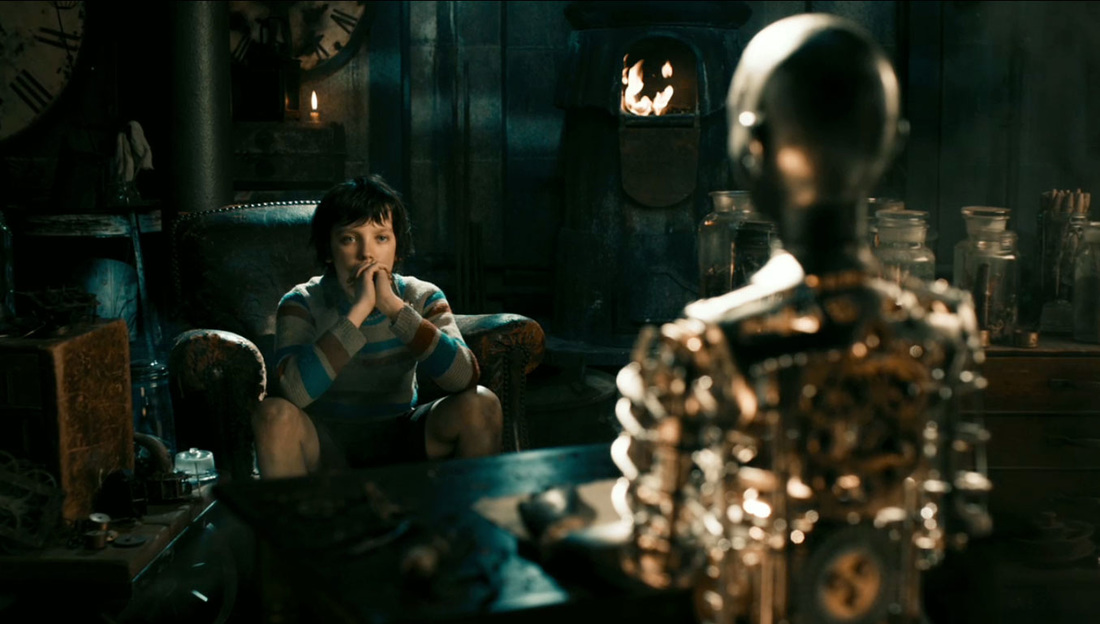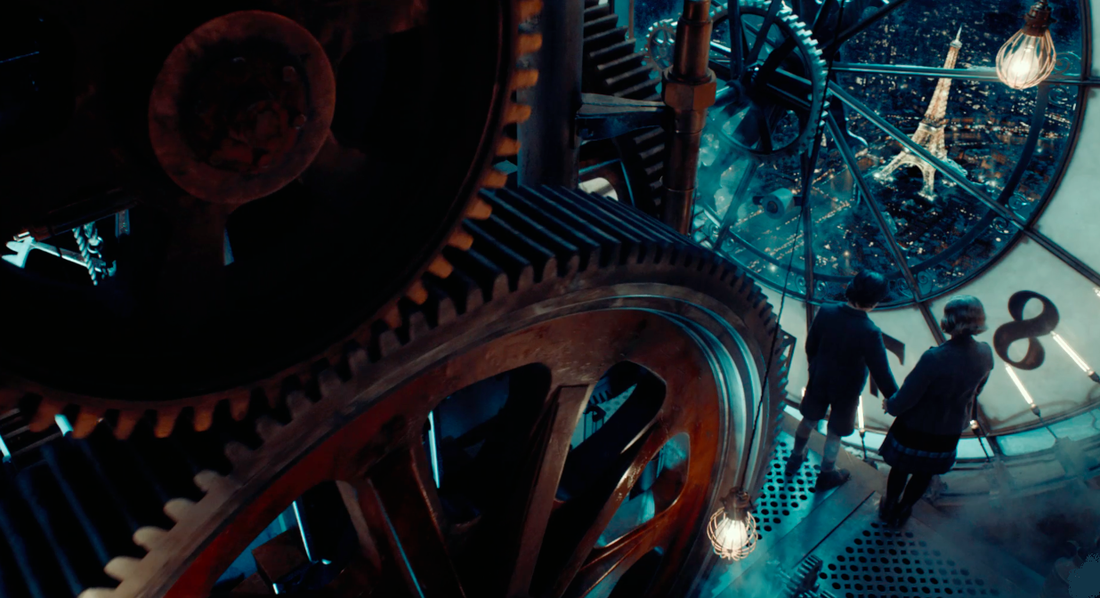
Written by John Snyder
Although it is not what would be typically classified as science fiction, Martin Scorsese’s 2011 film Hugo uses a machine as its central metaphor to convey themes very intimate to humanity. Hugo Cabret (Asa Butterfield) is the protagonist, whose orphaned life is analogous to the dismantled automaton he is trying to repair. He lives behind the walls of a train station, which are alive with the mechanical motion of spinning gears, swinging pendulums and the ceaseless ticking of clocks. It is a stunning visual and aural effect that captures the ceaseless motion of his world.
The automaton on which he is working is the last relic of the life he lived before his father (Jude Law) died. It is broken, but Hugo and his father had almost fixed it—the only piece remaining was a heart shaped key. Similarly, Hugo has been broken by the years, and is missing the essential piece of his life that was his father. The movie does not spiral into an existentialist lament of being broken with no hope of healing, however. In fact, the story seems to oppose its modernist setting when Hugo miraculously finds the missing piece of his automaton in the possession of his new friend Isabella (Chloë Grace Moretz). And to top it off, Isabella herself fits into the place of the missing piece in Hugo’s life. Although one character, after having lost all hope for humanity during the Great War, tells Hugo bitterly that “happy endings only happen in the movies”, Hugo’s own experience proves him wrong. Of course, Hugo is a movie itself, and one packed with meta-criticism and film history at that. But the character of Hugo is a very big appreciator of movies, and of their happy endings too, and in this particular story his hope is rewarded.
“I'd imagine the whole world was one big machine. Machines never come with any extra parts, you know. They always come with the exact amount they need. So I figured, if the entire world was one big machine, I couldn't be an extra part. I had to be here for some reason.”



 RSS Feed
RSS Feed
